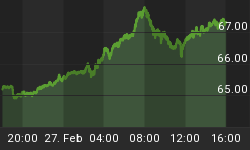"China should delay its bid to pass South Korea as the world's biggest shipbuilder to prevent a flood of new vessels extending industry-wide losses, said Clarkson Plc's Managing Director Martin Stopford. 'This sort of target really should be put aside for the time being,' he said in an interview Wednesday at a conference in Shanghai. China has asked state banks to boost financing for new ships to prevent order cancellations, safeguard jobs and support a plan to pass South Korea in ship production by 2015. At the same time, the global container-ship fleet has as much as 20 percent excess capacity...." -- China Shipyards Should Delay Bid to Pass Korea, Business Asia, December 4, 2009
"Jiangsu, the dominant province in Chinese ship manufacturing, received 61.7 percent fewer orders for ships in the first five months than in the same period of 2011, due to a slump in the global shipping market, new official figures have indicated....The sluggish world market and excess of transportation capacity contributed to the drop in orders, according to the commission." -- Chinese Ship Orders Drop Drastically, Xinhua, July 2, 2012
The unwinding of the commercial shipbuilding market will appeal to a small group of investors. It can be viewed more broadly as representative of value investments to come. The characteristics apply to assets that were ordered and built with projections of ever-increasing demand. Or, as described in the objective of Chinese shipbuilding above, to achieve national greatness, buyers or no buyers.
Demand for new ships is notoriously unpredictable. Shipping companies and commodity producers order when the economy is blooming: trade percolates, more ships are needed. Deliveries are often made after the business cycle has peaked and trade is wilting. Freight rates are falling at the same time cargo capacity (new and usually larger ships) is delivered.
The world economy is slowing fast. Trouble in shipping is being exacerbated by mendicant banks. A most neglected problem (in public discussion) is the deceleration of collateral, the consequence of which is forcing banks to shed assets. Europe is the center of balance sheet downsizing, but hardly alone. The base of assets that U.S. banks are permitted to pledge as collateral has shrunk by around $5 trillion since 2008. European banks lent generously to Asian companies, but are now retreating.
The indefatigable Andy Lees (AML Macro Limited) wrote in his July 2, 2012, Morning Headlines: " The contraction in European banks' balance sheets took another turn as Commerzbank announced it was to pull out of ship finance. It had been the world's 3rd largest maritime lender. Danish shipping association BIMCO said 'Ship owners stuck in a financial moment they cannot get out of are likely to get closer to a bankruptcy as yet another option in the traditional ship finance banking market is lost.' Lloyds and Soc Gen [Societe Generale] have already pulled out. About USD249bn is needed in new debt and equity in the coming 3 years to cover orders for new ships."
Commerzbank, Lloyds, and Societe Generale are in a fix. First, is the general encumbrance of European banks, not necessarily the three under discussion. National greatness in the Old World opens with government demands for banks to buy their nation's debt. This has been a losing proposition since the dawn of the Renaissance. Second, the quality of their pledged collateral is falling. Most European banks need to borrow from the ECB (European Central Bank), but can only do so by pledging eligible collateral. They are selling assets that would require additional collateral, or, simply selling assets to reduce exposures.
Dominoes fall: As Danish shipping association BIMCO warns, this pushes the ship owners closer to bankruptcy. The value of those assets declines. The ECB then demands more collateral to supplement current pledges. We will stop here. (The ECB is turning the quality of the collateral into a farce, but that should be addressed separately.)
It is not difficult to look at this dynamic and foresee falling prices around the world. Given the tentacles of central banks across asset classes, it is to Bernanke, King and Draghi investors look to forestall an avalanche. The central bankers are doing what they can to suspend the repricing of assets in a deleveraging world. The ECB collateral farce is one attempt. The Bank of England's announcement on July 5, 2012, that it will dump £50 billion into the British economy is another. Given the volume of assets in the world, this is pocket change, as is Bernanke's latest Twist. The Fed chairman must be chomping at the bit. He has a textbook opportunity (his textbook) to really test his acumen: $5 trillion at a minimum.
Redundant ships brought the Tisch family to mind (Loews Corp: L on the NYSE). Searching the archives, it was Jim Tisch who was interviewed in the August 26, 1985, issue of Grant's Interest Rate Observer. Ships were the Old Maid. "Sunk" was the headline in Forbes. "Used Ship Prices Set to Fall," claimed the Financial Times. A ship owner was quoted: "You'll probably [make] some money, but there'll be a hell of a bloodbath in the meantime."
Jim Tisch was buying ships for $5.5 million each. They had cost $60 million to build and would cost the same to construct in 1985. These assets (so to speak) were idling in Norway and Scotland (after having been renamed after Loews' movie theatres: Orpheum and Paradise, for instance).
The thinking was probably not much different than investing in movie theatres: how much do we need to fill them to make money? (They made plenty.) Today, the coincident problems of falling asset prices and depleted lending will empty ships, commercial real estate, and other structures of investors, renters, and the good word of Forbes.
Frederick Sheehan writes a blog at www.aucontrarian.com
















